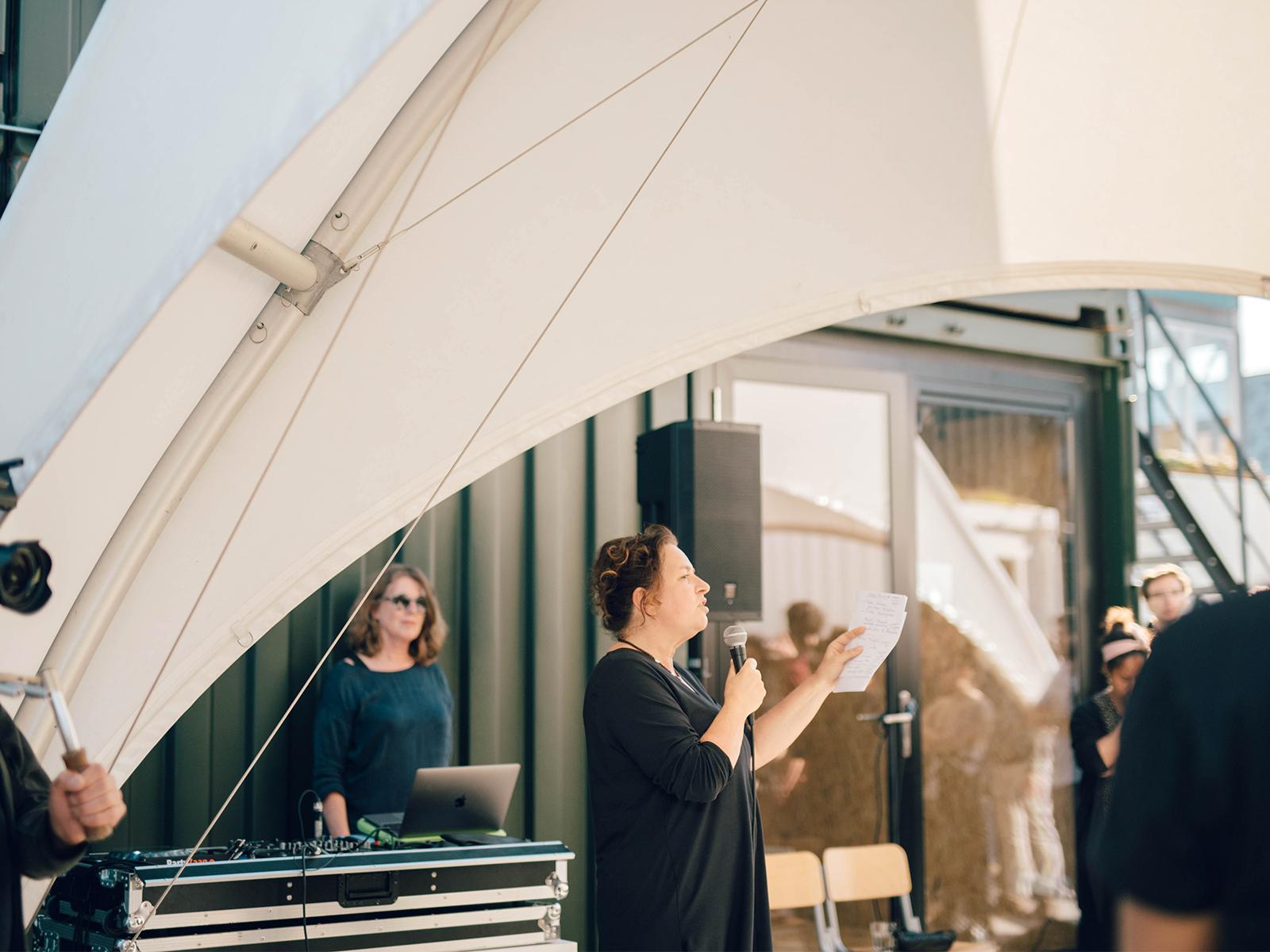Waag opened its first outpost on Friday 21 June 2019 at the Amsterdam Science Park: planet B, a place for artistic research and expeditions in which citizens, artists and scientists work together on an equal and ecological future. The festive opening was the launch of the first expedition within planet B, called AI Culture Lab, where artists get to work on the theme of artificial intelligence (AI).
Have a look at the photos of the opening here
About planet B
Planet B is both a physical place and a speculative concept that offers scientists, artists and citizens room to develop answers to the social and ecological challenges of our time. The launch, which took place during the WeMakeThe.City festival, is the first step in the mission of planet B to realise a laboratory for the future over the next five years; a mission to re-colonise planet Earth on the basis of make expeditions to a fictional planet.
AI Culture Lab
Planet B's first mission focuses on the exploration of artificial intelligence (AI) and related ethical issues. In the AI Culture Lab, an interdisciplinary group of artists, scientists, technology developers, entrepreneurs and citizens goes in search of the role and potential of AI. We do this in collaboration with artists (collectives) who will do research this year as artist in residence within the AI Culture Lab: Aesthetics of Exclusion, Antti Tenetz, Tomo Kihara and Femke Herregraven.
The 750th birthday of Amsterdam
In the coming years we will investigate what we can learn socially from space travel and how we can realize an ecologically inclusive bio-economy. The ambition is to grow planet B into a sustainable platform that offers space for research into innovation and ecology. On the 750th anniversary of Amsterdam in 2025, a 'laboratory as a museum' will be set up, in which planet B's research will be given a permanent place.
Partners
Planet B is an initiative of Waag and Amsterdam Science Park and in this context works together with Sandberg Institute, ESA and Ars Electronica.
